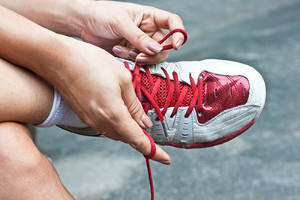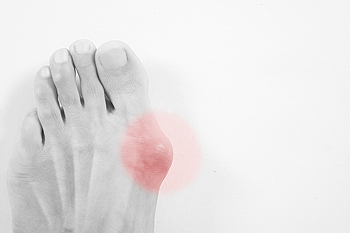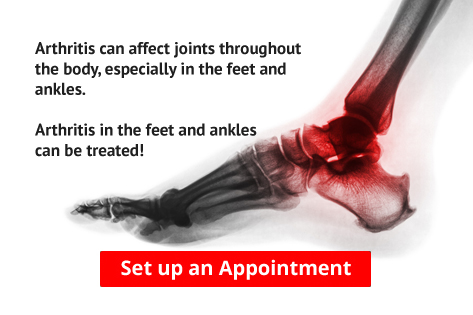Blog
Different Types of Running Shoes
 Research has indicated that wearing the right type of running shoes for your preferred style of running can provide the necessary stability for the overall body. It is helpful to decide which type of running will be practiced. People who enjoy running on roads or tracks typically choose a shoe that is made of lightweight and flexible materials, in addition to having smooth soles. Trail-running shoes are constructed with cleats on the outside of the sole, as this helps to maintain a stronger grip on uneven surfaces. When purchasing running shoes, it is suggested that the top of the shoe is similar to the shape of your foot. This can reduce excessive friction, and may help to prevent blisters from forming. If you are interested in purchasing running shoes, it is advised that you speak with a podiatrist who can help you to make the correct choice.
Research has indicated that wearing the right type of running shoes for your preferred style of running can provide the necessary stability for the overall body. It is helpful to decide which type of running will be practiced. People who enjoy running on roads or tracks typically choose a shoe that is made of lightweight and flexible materials, in addition to having smooth soles. Trail-running shoes are constructed with cleats on the outside of the sole, as this helps to maintain a stronger grip on uneven surfaces. When purchasing running shoes, it is suggested that the top of the shoe is similar to the shape of your foot. This can reduce excessive friction, and may help to prevent blisters from forming. If you are interested in purchasing running shoes, it is advised that you speak with a podiatrist who can help you to make the correct choice.
You should always make sure your running shoes fit properly in order to avoid injury. For more information, contact Dr. Michael E. Newman from Pennsylvania. Our doctors can provide the care you need to keep you pain-free and on your feet.
Choosing the Right Running Shoe for Your Foot Type
Improper shoe sizing can cause a myriad of problems for your feet. Shoes that don’t fit you properly can lead to muscular imbalances in your body, which can result in foot, knee, and hip injuries.
Tips for Finding the Right Running Shoe
- Make sure you have a thumb’s width of wiggle room between the end of your longest toe and the front of the shoe.
- There should be little to no slipping at the heel
- Don’t assume your size in one shoe brand will be your size in another
- Do not lace up your shoes too tightly
- Walk around in the store with your new shoes before you buy them
If you have any questions please feel free to contact our one of our offices located in Plymouth Meeting and Ambler, PA. We offer the newest diagnostic and treatment technologies for all your foot and ankle needs.
Read more about Choosing the Right Running ShoeDifferent Reasons a Bunion May Develop
 Bunions, otherwise recognized as a deformity of the big toe, can be incredibly painful when left untreated. They may easily be diagnosed by looking for a bony protrusion on the side of the big toe, and are typically more common among women and elderly patients. However, there are many reasons why someone may develop a bunion, one of those reasons being genetics. Another contributing factor may have to do with your shoes. Those who commonly wear constraining footwear, such as high heels, or cowboy boots, for extended periods of time may be more likely to develop a bunion. Injuries to the foot, as well as arthritis, can both increase your risk of developing a bunion. To help find relief from the pain bunions typically cause, it is suggested that you wear custom orthotics. For more information on treating bunions and how orthotics may help, please consult with a podiatrist for professional care.
Bunions, otherwise recognized as a deformity of the big toe, can be incredibly painful when left untreated. They may easily be diagnosed by looking for a bony protrusion on the side of the big toe, and are typically more common among women and elderly patients. However, there are many reasons why someone may develop a bunion, one of those reasons being genetics. Another contributing factor may have to do with your shoes. Those who commonly wear constraining footwear, such as high heels, or cowboy boots, for extended periods of time may be more likely to develop a bunion. Injuries to the foot, as well as arthritis, can both increase your risk of developing a bunion. To help find relief from the pain bunions typically cause, it is suggested that you wear custom orthotics. For more information on treating bunions and how orthotics may help, please consult with a podiatrist for professional care.
If you are suffering from bunion pain, contact one of our podiatrists of Pennsylvania. Our doctors can provide the care you need to keep you pain-free and on your feet.
What Is a Bunion?
Bunions are painful bony bumps that usually develop on the inside of the foot at the joint of the big toe. As the deformity increases over time, it may become painful to walk and wear shoes. Women are more likely to exacerbate existing bunions since they often wear tight, narrow shoes that shift their toes together. Bunion pain can be relieved by wearing wider shoes with enough room for the toes.
Causes
- Genetics – some people inherit feet that are more prone to bunion development
- Inflammatory Conditions - rheumatoid arthritis and polio may cause bunion development
Symptoms
- Redness and inflammation
- Pain and tenderness
- Callus or corns on the bump
- Restricted motion in the big toe
In order to diagnose your bunion, your podiatrist may ask about your medical history, symptoms, and general health. Your doctor might also order an x-ray to take a closer look at your feet. Nonsurgical treatment options include orthotics, padding, icing, changes in footwear, and medication. If nonsurgical treatments don’t alleviate your bunion pain, surgery may be necessary.
If you have any questions, please feel free to contact one of our offices located in Plymouth Meeting and Ambler, PA . We offer the newest diagnostic and treatment technologies for all your foot care needs.


